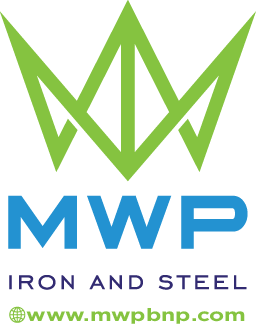Steel Supplier Network:
In today’s fast-paced world, the demand for steel is ever-increasing, driving the need for a well-connected and reliable steel supplier network. Whether you’re a construction company seeking raw materials or a manufacturer requiring steel for production, having access to a robust network of steel suppliers can make all the difference. In this article, we’ll delve deep into the world of steel supplier networks, exploring their importance, components, and benefits.
The Significance of Steel Suppliers
Steel is the backbone of numerous industries, from construction and manufacturing to infrastructure development. Therefore, establishing a strong supplier network for this essential material is crucial. Let’s dive into the specifics:
1. The Key Players in the Network
A steel supplier network comprises various entities, including:
a. Steel Mills
Steel mills are the primary source of raw steel production. They produce steel in various forms and grades to cater to different industry requirements.
b. Distributors
Distributors act as intermediaries between steel mills and end-users. They stock a variety of steel products and provide accessibility to a wide customer base.
c. Fabricators
Fabricators shape and process steel into customized components or structures. They play a pivotal role in turning raw steel into functional products.
2. Network Infrastructure
a. Digital Platforms
Modern steel supplier networks rely heavily on digital platforms and online marketplaces. These platforms connect buyers and sellers, streamlining the procurement process.
b. Transportation and Logistics
Efficient transportation and logistics are essential for timely steel deliveries. Well-planned routes and transport management ensure the smooth flow of steel from suppliers to end-users.
3. Benefits of a Robust Network
a. Cost Efficiency
An extensive steel supplier network allows for competitive pricing, helping businesses reduce their production costs.
b. Timely Deliveries
Quick access to steel suppliers ensures that construction projects or manufacturing processes remain on schedule.
c. Diverse Product Range
A well-connected network offers a wide range of steel products, allowing businesses to find the right fit for their specific needs.
Navigating the Network
Now that we’ve outlined the key aspects of a steel supplier network, let’s explore how businesses can navigate and leverage this network effectively:
4. Choosing the Right Supplier
Selecting the right steel supplier is crucial. Factors to consider include:
a. Reputation
Evaluate the supplier’s reputation in terms of product quality and reliability.
b. Product Range
Ensure the supplier offers the type and grade of steel you require.
c. Geographic Location
Proximity to your business can impact transportation costs and delivery times.
5. Building Strong Relationships
Developing solid partnerships with key suppliers fosters trust and can lead to preferential treatment in terms of pricing and availability.
6. Staying Informed
Stay updated on market trends, steel prices, and industry news. This knowledge can help you make informed decisions within the network.
Conclusion
In conclusion, a well-established steel supplier network is the lifeline of industries that rely on steel. By understanding the components, benefits, and strategies for navigating this network, businesses can thrive in a competitive market.
Read Also; Top Steel Companies in Pakistan: A Comprehensive Guide
Frequently Asked Questions
- How do I find steel suppliers near me?
- You can start by searching online directories, attending industry events, or contacting local business associations for recommendations.
- What is the role of a steel distributor in the network?
- Steel distributors act as intermediaries, offering a wide range of steel products and facilitating the supply chain.
- Are there digital platforms for connecting with steel suppliers?
- Yes, many online platforms and marketplaces connect buyers with steel suppliers, making it easier to find and purchase steel.
- How can I ensure timely steel deliveries for my construction project?
- Plan ahead, communicate your project timeline with the supplier, and choose a supplier with a strong track record of on-time deliveries.
- What are some cost-saving strategies within a steel supplier network?
- Negotiating bulk purchases, building long-term relationships, and staying informed about market trends can help reduce costs.
